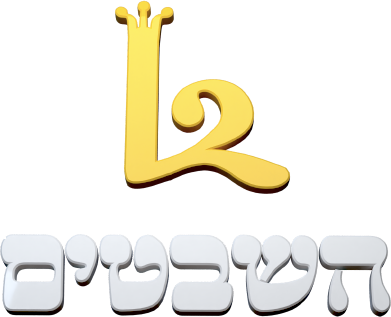Jacob's greetings to his sons

The book of Genesis ends with a series of blessings of Jacob's instructions to his sons, the tribes of Israel. The Torah commentators were faced with the question: What is the essence of blessings? What is the overall message that our forefather Jacob sought to convey to us?
Let's look a little at the content of the blessings:
Reuben, as the firstborn, deserved to be king. But he was rejected because he is "carbonated like water," meaning that his recklessness may lead him to carry out hasty policies that seek immediate gains at the expense of the nation's fundamental values. Already when our forefather Jacob needed someone to vouch for his young son Benjamin's well-being, Reuven suggested: "You are the two sons of Tamit if I do not bring us to you" (Gen 42:33).
Shimon and Levi, on the other hand, know how to properly defend the honor of the nation, as they proved in Nablus, in its act of judgment. They are 'religious fanatics.' Indeed, such leadership is needed in extreme situations in the history of the nation, such as the act of the calf, in which Moses cried out: "Who is to the Lord to me. And all the sons of Levi shall gather to him" (Exodus 32:26), either in the act of Pinchas, or Judith, or Mattityahu the Hasmonean, but it cannot serve as a permanent leadership in the kingdom. Especially dangerous are Shimon and Levi when they are concentrated among themselves: "In their secret (when they get together) do not come to my soul," says Yaakov Avinu. The solution for them is to scatter them among their brethren: "I will divide them among Jacob, and I will distribute them in Israel" (Matt. 7), and then they will bless: "Your judgments will be directed to Jacob and your Torah to Israel" (Deuteronomy 33:10).
Zevulun is a man of the world, with broad horizons, and is engaged in international trade "and he is on the shore of ships" (Matt. 13). But therein lies the danger that he will feel a greater commitment to the regional community than to his people. In his eyes, "regional development" is more important than the good of his nation.
Issachar, the "donkey gram", the Torah scholar of the group, was disqualified from power despite his wisdom. It is precisely the love of Torah study that may deprive him of his healthy political sense, preferring the lack of independence: "He feared rest because it was good, and the land that was pleasant, vit that like to suffer, and let it tax work" (Matt. 15). In his eyes, it would be preferable for state affairs to be entrusted to a foreign government, in order to obtain the mental peace necessary for theoretical study.
Dan is willing to fight to achieve liberation from the yoke of strangers, but he is actually qualified for guerrilla warfare, "a snake on a road, a guest who bites the heels of a horse" (Matt. 17), a warfare worthy of the days when the people fought for their independence, but which is ineffective once they have to come out of the underground.
On the other hand, Gad knows how to organize an orderly army: the "Yagodno Battalion". But he may give rise to a leadership that sees everything from the perspective of a military man alone, so even if he knows how to conquer, he may in time withdraw for strategic reasons: "And he will be heeled" (Matt, 19). He can be a military minister, but not a prime minister.
Likewise, Asher, who is "fat to his father-in-law" (Matt, 20), can be an economic minister, and Naftali "the giver Emery Sheffer" (Matt, 21), can be the minister of culture, but they cannot be entrusted with the management of the state.
A better candidate is supposedly Joseph, who has a wealth of experience as prime minister of Egypt, ruling over his brothers, and the most righteous of them all. However, because of his unique virtue, he is "the monk of his brothers" (Matt, 26), who differs from them and does not attract their sympathy: "And he was bitter and most of him and he was defiled with arrows" (Matt. 23).
Benjamin, unlike Joseph, was actually the unifying factor between the brothers, the one who reunited the family. This quality, which is so necessary for a leader, is available to him when the kingdom must be established in Israel, as in the days of Saul, or at the time of the nation's decline in exile, when it is necessary to "gather all the Jews" in the days of Esther (see Esther 4:16). But this talent is revealed at the beginning or end of the historical process: "In the morning he shall eat a witness, and in the evening he shall distribute booty" (Matt. 27), and not in the historical sequence.
So all these are not worthy of the kingdom in spite of their virtues. Only Judah deserves to take the tribe of leadership in his hand: "The tribe of Judah shall not be tormented" (Matt. 10). The reasons for this are three. One is his ability to attract the sympathy of all parts of the nation: "Judah, you will be your brother... Let the sons of your father bow down to you" (Matt. 8). Likewise, his ability to subdue the enemy is to his credit: "Your hand is in the back of your enemies" (ibid.). But the main secret to his success is political patience. "The cub of the lion of Judah" (Matt, 9). First a cub, and finally a lion. The knowledge that "the redemption of Israel comes from Kimaa Kima'a" (Yerushalmi Berakhot 1:1) is what gives him leadership power, because he is not frightened by the pressure of the hour or by temporary falls in the ravages of time. He remains true to his eternal goals, along with facing the difficulties of reality.
From the move from cub to lion, from small to large, he comes at the end of the process to "kneel down like a lion and a dog, who will raise us" (Matt, 9). The Lavi is an even larger lion that cannot be moved. Patience is the foundation of governmental stability.
Let us add that Maimonides' wonderful words about the character of the King of Israel (2 Kings 6) are always worthy of standing before the eyes of the leader:
"In the same way that the Scripture paid him great honor, and owed everything to his glory, so he commanded that his heart be low in him... And no rudeness will be practiced in Israel... And he shall be gracious and merciful to their little ones and to their greatness, and shall go forth and come with their belongings and goods, and spare the smallest honor of their cattle. And when he speaks to the entire audience in the plural, he will speak softly... He will always behave very humbly... And he will suffer their trouble and burden and their complaints and foam when an artist carries the mammal." (From Rabbi Sharkey's articles)






